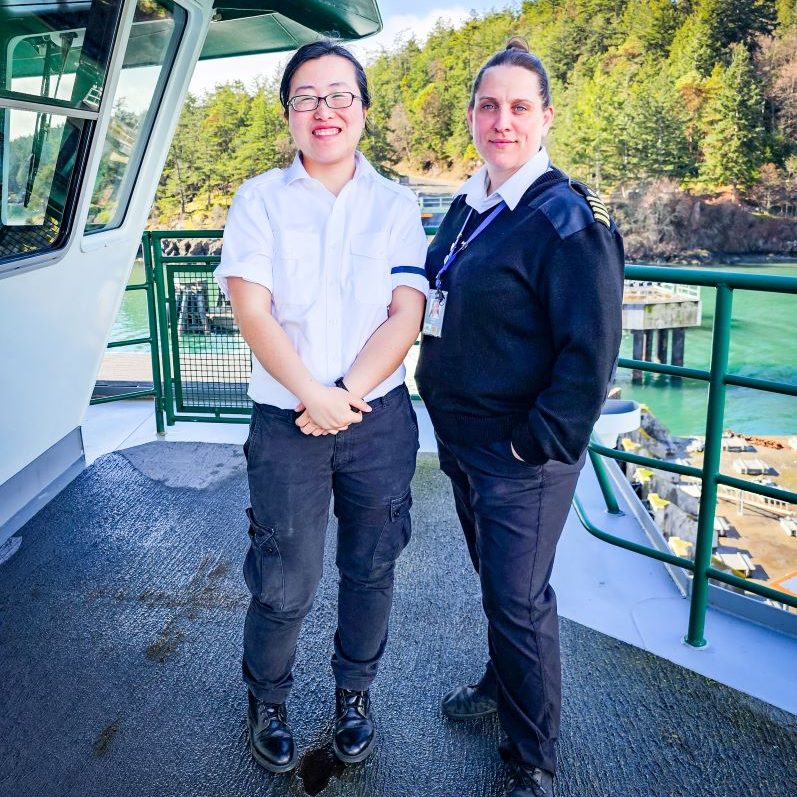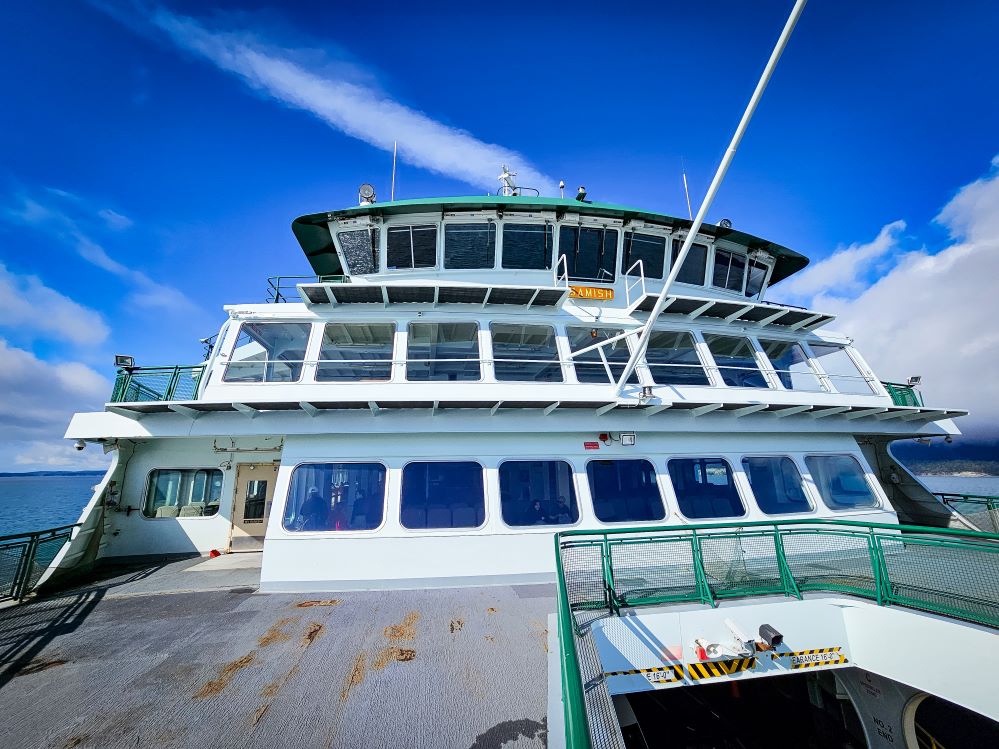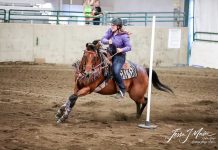Throughout history, women have forged new paths, broken down gender barriers and created more precise opportunities for the following generations. Skagit County local heroine Betty Lowman, who rowed her little red canoe to Ketchikan, Alaska is one. And standing on the bridge of a Washington State Ferry, Janel Offley is making history right now. Some know her as the captain of the ship.
Aboard the Samish Ferry With Captain Offley
I rode along with Janel as she piloted the Samish ferry from Anacortes to Lopez Island. When not commanding or navigating the vessel, she spoke with me about being a female captain aboard a Washington State Ferry.
Janel began her ferry career in 2000 as an Ordinary Sailor, or OS for short. This is the entry-level position for any deck crew member. After enough sea time, she was able to progress up the ladder to Able Bodied Sailor and eventually receive further training to achieve her First Mate Certification, then one last training to become Captain. Inside the cabin of the Samish, there is a poster displaying a flow chart of deck crew positions. It reads: “We don’t just hire a Captain. We develop one.” Another way some crew members fast-track their advancement and gain their training is through a maritime school.

Throughout these years, Janel has seen more women work for the ferry system in various roles but few pursue the position of captain. In fact, 5 out of around 170 captains are currently women, making up slightly less than 3%. In a traditionally male-dominated industry, women are carving out their niche, and the role of a female captain on a Washington State Ferry is a good example of how they are doing that with competence, resilience and leadership.
The Role of Women as Ferry Captain in Washington
The journey to becoming a captain is often marked by challenges for anyone, regardless of gender. However, overcoming stereotypes and biases has been an additional hurdle for women in maritime professions. As a female captain, navigating these waters requires mastering the technical aspects of sailing and breaking through the glass ceiling that has historically limited women in this field.
In her time as captain, Janel has only experienced one run-in with a biased viewpoint, and that was early on with a Chief Engineer. He was known to not like women leadership, Janel shares. Her response? She asked him directly what he did not like and how she, as a captain, could do better. In other words, she laid the groundwork for open communication and mutual respect, two qualities Janel prioritizes with her crew. “I want them to know my door is open, and they can always come talk with me,” she says.

One crucial aspect of being a captain is the ability to inspire and motivate others. The maritime industry is inherently hierarchical, and captains are responsible for the vessel and the crew under their command. Along with her good humor and infectious laugh, Janel mentors other crew members and new Mates in training. One such Mate, Leda, joined us on the bridge as we approached Lopez Island. Side by side, Janel and Leda worked as a team to dock the boat with skill and ease. By doing so, Leda is gaining experience and sea time.
Janel may not view herself as a role model, as she says, “I know my job and want to do it well for the passengers on board as well as my crew.” But as Leda pointed out, seeing a woman on the bridge does make a difference to women deck hands (Ordinary Sailors). It sends the message that they can do this, too.
Life as a Washington Ferry Captain
As a state entity, the Washington State Ferry system, with over 1800 employees serving the Puget Sound area, fosters an environment of inclusion. For Janel, she aligns her bridge with these same ideals of inclusion and a collaborative work environment, regardless of gender.

She demonstrates how she communicates with the Chief Engineer down in the engine room by pressing a button that sounds a bell. She needs to be able to communicate effectively with the engine room and make decisions under pressure. Above all, the safety of passengers and crew is paramount for Janel. These are all key ingredients to being an excellent leader, proving that gender is no longer a factor. Or, as she says with a laugh, “Women really can drive.”
As we made our voyage back towards Anacortes, I spoke to Janel about her work-life balance. Her two children are grown now, leaving Janel and her husband to be empty nesters soon. Regardless, Janel does not lose sight of the essential things in life. “Never prioritize work over family,” is her advice. “The rest will fall into place.”
So, it seems that a female captain on a Washington State Ferry does serve as a role model, demonstrating that gender should never be a limiting factor in pursuing one’s passion and career aspirations. With Janel Offley at the helm, she is steering a course less traveled but one that makes history.





































